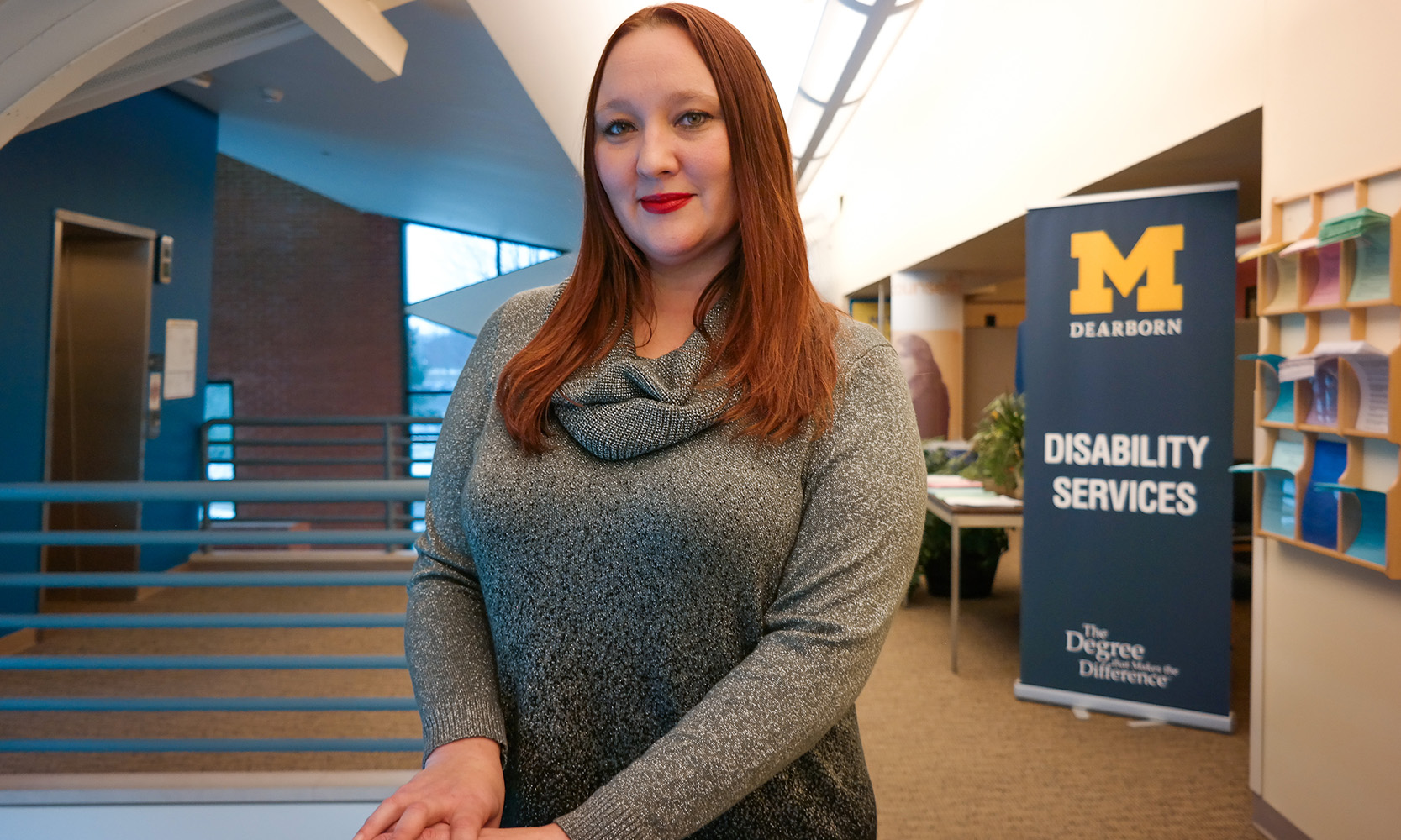
The first thing Sara Byczek wants students to know about therapy is that it’s not what you see on TV.
“I don’t even have a couch in my office,” Byczek said, smiling, pointing out the two-seat loveseat that’s definitely not long enough to lay down on. “This is not Dr. Phil. It’s not about me telling you it’s your mother’s fault, your father’s fault. I’m not an advice giver. I am here to empower you to make decisions, but you’re the expert on you.”
Breaking down the persistent stigmas around mental health that keep students from reaching out is a top priority for Byczek as she takes over as director of Counseling and Disability Services. A key part of her approach will be expanding the counseling center’s reach beyond the office itself—connecting with student organizations, coaching faculty and staff on how to be good mental health “first responders,” and integrating services into other parts of university life. One big idea for that: Down the road, she’d love to install pop-up counseling offices in academic buildings or the University Center for drop-in, paperwork-free appointments.
Byczek said expanding services is crucial on university campuses, where nationwide, more students are both seeking counseling and coming in with more serious challenges, like depression or anxiety. Because of increased demand, students often face wait lists for counseling services; at UM-Dearborn, the wait time currently is about two weeks. She hopes to keep up with students’ needs this year by expanding group counseling programs, which provide access to an unlimited number of sessions. Byzeck, who is a psychologist herself, also is making it part of her job description to see students weekly.
At UM-Dearborn, the counseling center shares space with disability services, which connects students with accommodations that ensure a level academic playing field. That includes things like providing audio textbooks, note-taking services and exam rooms for those who struggle with taking tests in traditional classroom environments.
“I can’t even tell you all the services we offer, because there could be something that comes up tomorrow that we’ve never done before,” Byczek said. “If a student comes in and says, ‘I have this problem,’ we work with them to come up with solutions. So it requires a lot of creativity. No one should feel left behind because of a disability.”
Byczek, who started in December, comes to the director’s position with nearly a decade of experience in university counseling offices. Her most recent post was at Wayne State University, where she worked as a psychologist and case manager, and served on the President’s Commission on the Status of Women.
It’s also a homecoming for the Downriver native, who did her undergraduate work at UM-Dearborn—graduating in four years, while holding down a full-time day job.
“I was definitely a non-traditional student. Because I was working, I think all my classes except two were evening classes,” she said. “But I’m getting a different view now. It’s going to be really great to see what goes on at UM-Dearborn during the day.”




